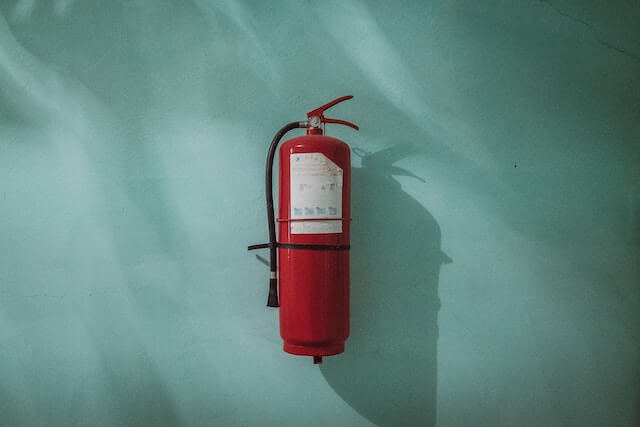Crisis preparedness and emergency response plans are essential components of responsible property management, ensuring the safety and well-being of tenants in the face of unforeseen disasters.
Rental agents play a pivotal role in providing tenants with vital safety information and resources for disaster preparedness. There are various ways in which rental agents can empower tenants with the knowledge and tools to navigate emergencies effectively.
The Importance of Crisis Preparedness
Tenant Safety
The safety of tenants is paramount, and a well-thought-out emergency response plan can make a significant difference during crises such as natural disasters, fires, or power outages. A proactive approach to preparedness helps mitigate risks and minimizes harm to tenants and property.
Consider a scenario where a rental property experiences a sudden gas leak. A well-prepared tenant who knows how to turn off the gas supply can prevent a potential disaster.
Legal Obligations
Many jurisdictions have legal requirements that mandate rental property owners and managers to have emergency response plans in place. Compliance with these regulations not only protects tenants but also shields property owners and rental agents from legal liabilities.
Compliance with legal requirements is not only about meeting minimum standards but also about ensuring comprehensive safety. Rental agents should keep up to date with local regulations and make sure their emergency response plans go beyond compliance to provide tenants with robust protection.

Property Preservation
Timely and effective emergency response can also prevent or reduce property damage. Proactive measures like securing the property in advance of a hurricane or swiftly addressing plumbing issues can save property owners significant repair costs.
Property damage can be costly and disruptive. For instance, in areas prone to flooding, rental agents can proactively implement flood prevention measures like sandbag placements. This foresight can save property owners significant expenses and prevent tenant displacement.
How Rental Agents Can Provide Safety Information
Tenant Orientation
During the tenant onboarding process, rental agents can conduct an orientation that includes information about emergency procedures. This can include evacuation routes, shelter locations, and contact details for emergency services. Encourage tenants to ask questions and seek clarification to ensure they are well-informed.
A tenant orientation that includes emergency procedures can be a hands-on experience. Rental agents can walk tenants through evacuation routes, demonstrate the use of fire extinguishers, and ensure that tenants are familiar with the location of safety equipment such as fire alarms and sprinklers.
Written Guidelines
Provide tenants with written guidelines or a handbook that outlines emergency response protocols. Include important contact information, such as local emergency services, property management, and maintenance personnel. Ensure that this information is easily accessible and kept up to date.
In addition to emergency contact information, written guidelines can include step-by-step instructions for various scenarios. For instance, they can provide clear instructions on what to do in case of a power outage, a fire, or severe weather conditions. Regularly update these guidelines to keep them relevant.
Regular Communication
Foster open lines of communication with tenants by periodically addressing emergency preparedness topics. Share updates on local emergency resources, offer tips for disaster kits, and remind tenants of their responsibilities during emergencies, such as reporting safety hazards promptly.
Rental agents can send periodic newsletters or emails with safety tips and reminders. For example, before hurricane season, agents can provide a checklist of hurricane preparedness steps, including securing outdoor furniture and having an emergency communication plan.
Resources for Disaster Preparedness
Emergency Kits
Encourage tenants to create emergency kits that include essentials such as water, non-perishable food, first-aid supplies, flashlights, and batteries. Provide guidance on what to include and where to store these kits within their rental units.

Rental agents can collaborate with local businesses to offer tenants discounted emergency kit supplies or distribute pre-made emergency kits as a welcome gift. This proactive approach encourages tenants to prepare for disasters.
Community Resources
Inform tenants about local community resources, such as emergency shelters, disaster relief organizations, and neighborhood watch programs. Provide contact details and locations so that tenants can access assistance when needed.
Sharing information about community resources can also involve organizing local emergency preparedness events or inviting representatives from relevant organizations to provide tenants with hands-on training and information sessions.
Online Portals
Create online portals or websites where tenants can access emergency information, report maintenance issues, and find updates on local conditions.
Rental agents can create dedicated sections on their websites or portals where tenants can access resources like instructional videos on emergency kit preparation, live weather updates, and safety checklists. Such platforms can serve as centralized hubs for tenant preparedness.
Evacuation and Reentry Plans
Evacuation Routes
Mark evacuation routes within the rental property and common areas. Ensure that tenants are aware of these routes and how to use them safely during an evacuation.
Rental agents should regularly inspect and maintain emergency exit signage and escape routes. Consider using color-coded maps or easy-to-follow diagrams to make evacuation routes more intuitive for tenants, especially those with limited familiarity with the property.
Reentry Protocols
In cases where tenants must evacuate, establish reentry protocols to ensure a smooth return. Communicate the criteria for reentry, any safety inspections that may be required, and the process for accessing temporary accommodations if necessary.
During a wildfire, for example, tenants may evacuate their homes temporarily. Rental agents can set up a system where tenants can check in after evacuations and receive updates on when it is safe to return. This clear communication helps ease tenant concerns during emergencies.

Final Word: Empowering Tenants for Safer Living
Crisis preparedness and emergency response plans are fundamental aspects of responsible rental property management. By prioritizing tenant safety and fostering a culture of preparedness, rental agents can provide tenants with the knowledge, resources, and support they need to navigate emergencies effectively. In doing so, they create safer, more secure rental communities that can better withstand unforeseen crises.
Safety is a great selling point for rental homes. After all, a safe home is a common desire across all tenant demographics. When you publish a listing on Padleads, make sure to highlight your commitment in keeping your property and tenants secure especially during crises and emergencies. Padleads allows you to syndicate your listing to different websites so more potential tenants would be aware of what you can offer.